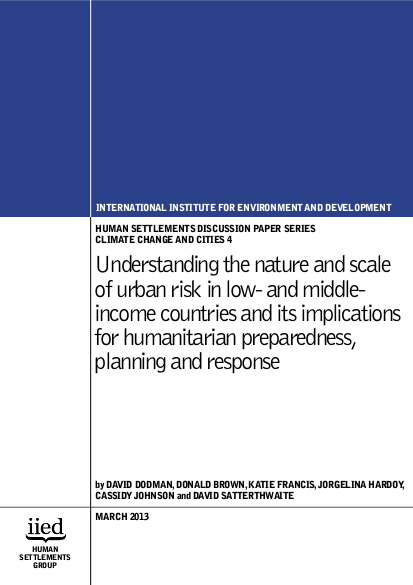
More than half of the world’s population now lives in urban centres. Most of the world’s urban population and its largest cities lie outside the most prosperous nations and almost all future growth in the world’s urban population is projected to be in low- and middle-income countries. Within these urban centres it is common for up to 50 per cent of the population to live in informal settlements. These are often located on land that is exposed to hazards, with poor-quality provision for water, sanitation, drainage, infrastructure, healthcare and emergency services. The residents of these low-income and informal settlements are therefore highly vulnerable to a range of risks, many of which are specific to urban settings. Yet despite this, many humanitarian agencies have little experience of working in urban areas, or of negotiating the complex political economies that exist in towns and cities. This working paper has two main purposes: (1) to review the quality of the evidence base and to outline knowledge gaps about the nature and scale of urban risk in low- and middle- income countries; and (2) to assess the policy implications for humanitarian preparedness, planning and response. It does so by analysing a wide range of academic and policy literature and drawing on a number of interviews with key informants in the field. It particularly focuses on evidence from Africa and Asia, but also draws on case studies from Latin America, because many examples of good practice come from this region. The paper aims to help ensure that humanitarian and development actors are able to promote urban resilience and disaster risk reduction and to respond effectively to the humanitarian emergencies that are likely to occur in cities.
Resource collections
- UN Habitat - Urban Response Collection
- Urban Response - Urban Crisis Preparedness and Risk Reduction
- Urban Response Collection - Community Engagement and Social Cohesion
- Urban Response Collection - Economic Recovery
- Urban Response Collection - Environment and Climate Change
- Urban Response Collection - Housing, Land and Property
- Urban Response Collection - Urban Crisis Response, Recovery and Reconstruction
- Urban Response Collection - Urban Resilience